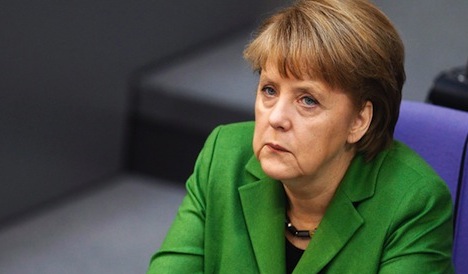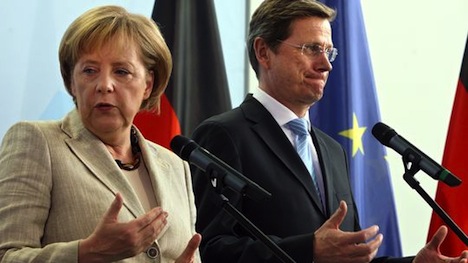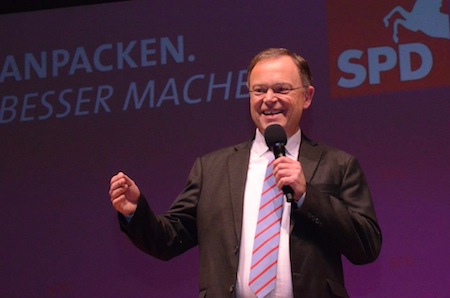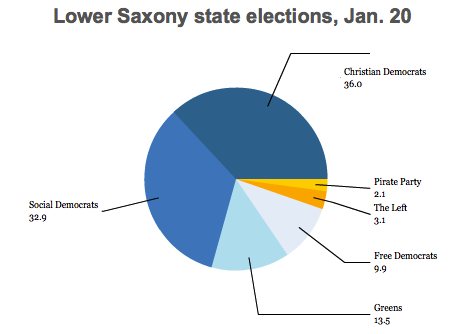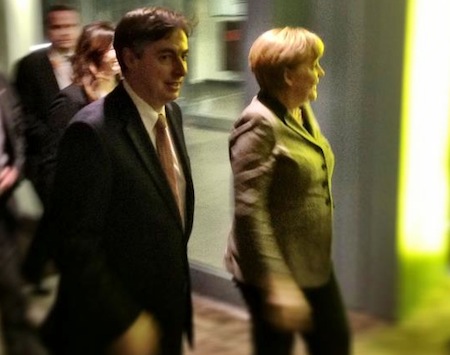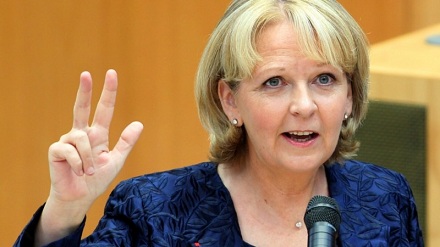I argue in EurActiv this morning that the most stable possible coalition for chancellor Angela Merkel after Germany’s September 22 federal elections might be a coalition between Merkel’s Christlich Demokratische Union (CDU, Christian Democratic Union) and the increasingly centrist Die Grünen (the Greens):
The possibility, long been referred to as a ‘Jamaica’ coalition because the colors of the three parties are those of the Jamaican flag — black (CDU), yellow (FDP) and green, has never happened in the Bundestag. State-level examples aren’t promising – Germany’s first ‘Jamaica’ coalition in Saarland collapsed after just 26 months later, and a purely ‘black-green’ coalition in Hamburg didn’t fare much better between 2008 and 2010, ending after difficulties enacting education reforms.
While it’s still more likely that Merkel will try to continue her current coalition with the liberal Freie Demokratische Partei (FDP, Free Democrats), the FDP is polling so poorly that it may not even return to the Bundestag — if it does, it will be with far fewer seats than the 93 seats it won in the previous election. The likeliest alternative is another ‘grand coalition’ with the center-left Sozialdemokratische Partei Deutschlands (SPD, the Social Democratic Party), but given the difficulty that the SPD has had in drawing contrasts with Merkel since the 2005-09 coalition, there’s reason to believe another ‘grand coalition’ would be tumultuous and likely to end with early elections.
A CDU-Green union could give Merkel the best of both worlds — a more stable majority than the FDP and a more reliable coalition partner than the SPD….
Merkel’s 2011 decision to phase out nuclear energy and to boost solar, wind and other forms of renewable energy made her an immediate ally of the Greens on their top policy priority, clearing what had been the chief obstacle to a CDU-Green partnership. Otherwise, the Greens have long been among the most pro-European of Germany’s political parties, and former Green leader and foreign minister Joschka Fischer championed greater European federalism.
It’s not to say there aren’t problems with the idea, and there’s still a leftist contingent that would be appalled by a partnership with Merkel. During the campaign, the Greens have called for a tax increase of up to 49% for the top rate and for an additional 15% wealth tax, and it’s unlikely Merkel’s CDU would agree to anything like that.
The Greens have always been split between fundi (fundamentalist / leftists) and realo (realistic / moderate) wings. But the radical 1960s-era Green leadership has given way to a more moderate leadership, personified by Katrin Göring-Eckardt, one of two Green chancellor-candidates and Cem Özdemir, a son of Turkish immigrants.
Even the more leftist Jürgen Trittin, the other Green chancellor-candidate, has espoused relatively centrist views. Meanwhile, Claudia Roth, the most stridently leftist Green leader, placed last in the race to determine who should represent the Greens in this year’s election.
Perhaps the most promising sign for a ‘black-green’ coalition is the level to which Greens have governed pragmatically at the state level. Although the Greens came to power in the southwestern state of Baden-Württemberg two years ago largely on the basis of opposition to the ‘Stuttgart 21’ underground train station project, it is now Green minister-president Winfried Kretschmann working with SPD allies and business interests to develop it.
Demographic data also favors a ‘black-green’ coalition:
Polling data shows that the Green electorate isn’t incredibly dissimilar to the upper-class, middle-aged CDU electorate — and nearly half of them already prefer Merkel for chancellor.
It’s not that it’s the likeliest coalition to emerge on September 23, but the chances of a ‘black-green’ government are currently underreported.
Here’s more on Germany’s upcoming elections from Suffragio, including:
- a comprehensive look at five possible coalitions that might emerge from Germany’s elections later this month;
- a preview of the Bavarian state elections scheduled to take place on September 15; and
- a look at why Peer Steinbrück’s candidacy for chancellor hasn’t succeeded.
